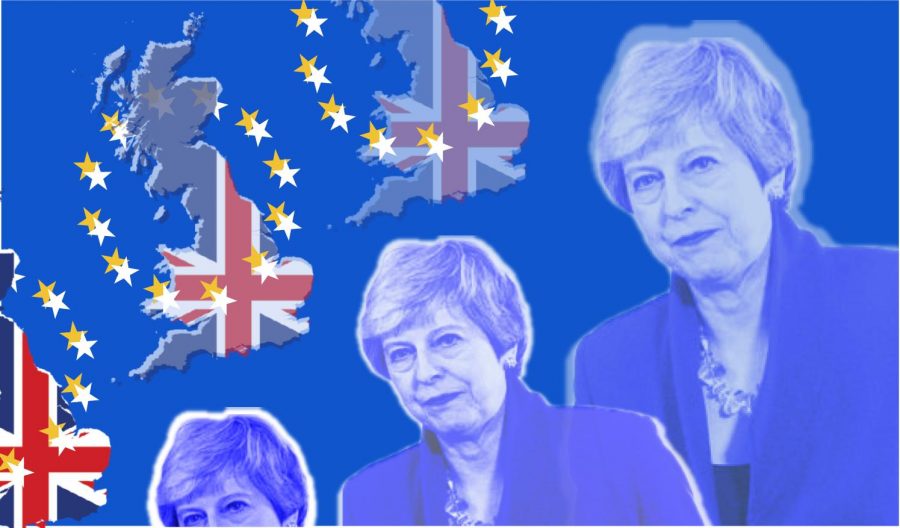CRLS Students and Parents Fret Over Future of the UK
Delayed Withdrawl Date Has Community Members Questioning the Path Forward
The UK must finalize plans to leave the European Union by October 31st, 2019.
May 1, 2019
Brexit, a portmanteau—or, combination—of the two words “British” and “exit,” refers to the secession of Britain from the European Union (EU). On June 23rd, 2016, 51.9% of British voters voted to leave the EU. As stated in Article 50 of the EU treaty, the country has been in a two-year transition period since the referendum. March 29th, 2019, was the formal date for the end of this period. However, British Prime Minister Theresa May pleaded for an extension until June 30th at the EU summit, and was rewarded with a delay until October 31st, 2019. With the deadline rapidly approaching, many people are asking the same question: What’s going to happen next?
CRLS students were very opinionated when asked about Brexit. CRLS senior Grace Austin, whose father is from England, personally disagrees with the decision: “I’m against it. I think that it limits the ability for immigrants—and emigrants—to function well between countries, and without that, there is less prosperity culturally and economically.” Furthermore, this decision will hinder free trade and close borders. Another senior, Josie Kuchta, shared, “Personally, I’m against Brexit, because it’s detrimental to the economy of both the [United Kingdom] and the rest of the EU in the long term.”
Parents of CRLS students also weighed in on Brexit. English emigrant John O’Neil, father of Jing O’Neil, a rising 9th grader, had much to say about the decision: “[Brexit] denies millions of young people the right to live and work in Europe. … Potential border issues will wreak havoc on commercial transportation, leading to serious troubles with the manufacturing industry, and could restart troubles with the end of the Good Friday Agreement in Ireland.” The Belfast, or “Good Friday” agreement, a peace accord between the British and Irish governments, established a separate and devolved government for Northern Ireland.
Another CRLS parent, John Davis, an Irish emigrant, is also against the decision. “I’m against Brexit for a couple reasons: Nigel Farage’s deliberately misleading and inaccurate depiction of post-Brexit Britain, the nonexistent plan for a responsible withdrawal from Europe, and most importantly, there cannot be a return to a hard border with Northern Ireland.” Nigel Farage, a member of the European Parliament, and leader of the Brexit Party, represents the millions of people who voted for Brexit in the EU’s parliament.
The Brexit decision influences the lives of many Scottish, English, Welsh, and both Northern Irish and Irish people. The future of the United Kingdom remains undecided, and the outcome of this decision will have a drastic impact on the lives of British people and citizens of other countries across the globe.
This piece also appears in our April 2019 print edition.










